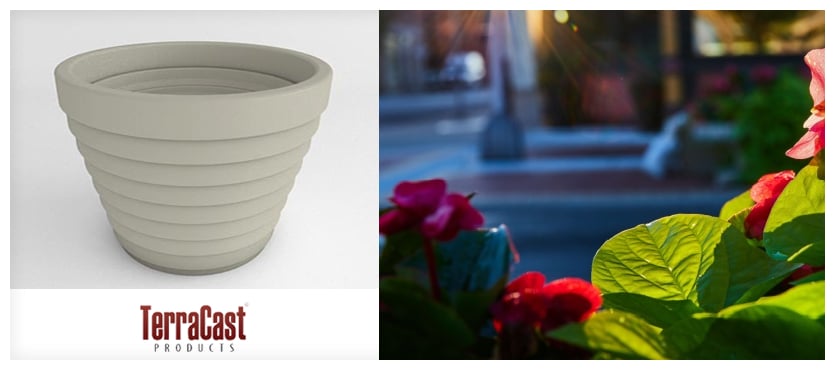As urban areas expand and the need for sustainable development becomes more pressing, eco-friendly landscaping practices are gaining momentum. One significant aspect of this movement is the use of resin planters, which offer numerous environmental benefits. Resin planters contribute to sustainable urban development by being durable, recyclable, and low-maintenance. Resin planters are revolutionizing urban landscaping and supporting the creation of greener, more sustainable cities.
The Need for Sustainable Urban Development
Sustainable urban development focuses on creating cities that are environmentally friendly, economically viable, and socially inclusive. This approach aims to reduce the ecological footprint of urban areas while enhancing the quality of life for residents. Key elements of sustainable urban development include:
- Green Spaces: Integrating parks, gardens, and green roofs into urban landscapes to promote biodiversity and provide recreational areas.
- Resource Efficiency: Using materials and technologies that minimize waste and reduce energy consumption.
- Resilience: Designing urban infrastructure to withstand environmental challenges such as freak weather events and natural disasters.
The Role of Resin Planters in Eco-Friendly Landscaping
Resin planters play a crucial role in eco-friendly landscaping by offering several advantages over traditional materials such as concrete, ceramic, and metal.
Durability and Longevity: One of the primary benefits of resin planters is their durability. Made from high-quality resins, these planters are resistant to cracking, fading, and weathering. This means they can withstand harsh environmental conditions, including extreme temperatures and UV exposure, without deteriorating. As a result, resin planters have a longer lifespan compared to traditional materials, reducing the need for frequent replacements and lowering overall resource consumption.
Lightweight and Easy to Handle: Resin planters are significantly lighter than their concrete or ceramic counterparts. This makes them easier to transport, install, and reposition, which is particularly beneficial for urban landscaping projects that require flexibility and adaptability. The lightweight nature of resin planters also reduces the carbon footprint associated with transportation and installation.
Recyclability and Reduced Waste: Resin planters can be made from recycled materials and are themselves fully recyclable. This contributes to a circular economy by diverting waste from landfills and reducing the demand for virgin raw materials. By choosing recyclable resin planters, urban developers can support sustainable waste management practices and promote resource efficiency.
Low Maintenance: Another advantage of resin planters is their low maintenance requirements. Unlike metal planters that may rust or wooden planters that can rot, resin planters do not require sealing, painting, or regular upkeep. They are also resistant to pests and diseases, which means fewer chemical treatments are needed. This translates to lower maintenance costs and reduced environmental impact from chemical use.
Enhancing Urban Green Spaces with Resin Planters
Integrating resin planters into urban landscapes can significantly enhance green spaces, providing aesthetic and environmental benefits.
Aesthetic Flexibility
Resin planters are available in a wide range of shapes, sizes, colors, and finishes, allowing for creative and customized landscaping designs. Whether it’s a modern rooftop garden, a community park, or a bustling streetscape, resin planters can be tailored to fit any aesthetic vision. This flexibility enables urban planners to create visually appealing green spaces that enhance the overall look and feel of the city.
Promoting Biodiversity
Urban green spaces play a vital role in promoting biodiversity by providing habitats for various plant and animal species. Resin planters can be used to grow a diverse array of plants, from ornamental flowers to edible herbs and vegetables. By incorporating a variety of plants, urban landscapes can support local wildlife, improve air quality, and contribute to the ecological health of the city.
Supporting Urban Agriculture
Resin planters are ideal for urban agriculture initiatives, such as community gardens and rooftop farms. Their durability, lightweight nature, and customizable designs make them suitable for growing food in urban environments. By promoting urban agriculture, cities can increase local food production, reduce food miles, and enhance food security for residents.
TerraCast® Resin Planters: A Sustainable Choice
TerraCast® offers a range of high-quality resin planters that exemplify the principles of eco-friendly landscaping. These planters are made from durable, weather-resistant materials that ensure long-lasting performance in urban environments. Some key features of TerraCast® resin planters include:
- UV Stability: Ensuring that the planters do not fade or crack under prolonged sunlight exposure.
- Impact Resistance: Withstanding the rigors of urban settings, including impacts and vandalism.
- Versatility: Available in various designs and sizes to suit different landscaping needs.
- Recyclability: Made from materials that can be recycled, supporting sustainable waste management practices.
Building Greener Cities with Resin Planters
Resin planters are an essential tool for creating sustainable urban landscapes. Their durability, recyclability, low maintenance, and aesthetic flexibility make them an ideal choice for modern urban development. By integrating resin planters into green spaces, cities can enhance their environmental sustainability, promote biodiversity, and improve the quality of life for their residents. TerraCast® offers a wide range of resin products that support these goals, helping urban planners and developers create greener, more resilient cities. If you have any questions, please don’t hesitate to contact us today.

